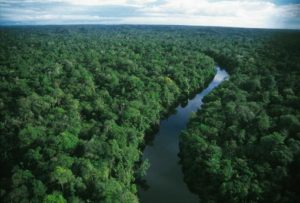Oilwatch International has saluted the people of Ecuador for what the network group terms a “historic victory” by voting against oil extraction.

On August 20, 2023, 5.2 million citizens of Ecuador overwhelmingly supported a historic referendum blocking oil extraction in the Amazon’s Yasuní National Park – the largest protected area in Ecuador with massive petroleum reserves crossing through Indigenous Yasuní land, while 3.6 million others voted to extract the oil.
The referendum, which held 10 years after the original petition, appeared to show the triumph of a citizenry with the capacity to fight for their right.
“In the face of opposition from vested interests, this vote affirms restorative justice for the entirety of the wounded Amazon and its people. It sent a strong signal that another world is possible,” said Oilwatch, a network that builds solidarity and promotes a common identity in the people of the Global South seeking to stop the expansion of fossil fuel extraction activities that degrades territories, socially and environmentally.
The group added: “This is a great lesson in the meaning of democracy and participation that places care for life at the centre of the struggle to overcome multiple crises. Activists from around the world recognise that Ecuador is now a reference point for forging citizenship that looks to the future in a new and visionary way.
“For the world, and particularly for Latin America, a just transition for people and nature. Throughout Latin America, the people especially the Indigenous peoples, through resistance struggles, are confronting the pollution and damage caused by oil extraction and moving to protect territories that must be liberated.
“And the larger mission of the Yasuni people is to heal their land and to restore the collective rights of peoples, and nature. Voting to keep an estimated 1 billion barrels in the ground at Yasuni is a remarkable climate action worthy of emulation.”
Chairman of Oilwatch International Steering Committee, Nnimmo Bassey, stated that the victory of the people of Ecuador is one that should be shared largely across the globe.
His words: “The vote on Yasuni is the real climate leadership the world sorely needs. After a long wait, we celebrate the victory of the people of Ecuador. This is a major step towards depetrolising the world and combating climate change and its ravages. This victory is a strong signal to polluters that their impunity must stop.”
Coordinator of Oilwatch International, Kentebe Ebiaridor, while celebrating the outcome of the referendum, described it as a huge victory not just for the indigenous people but for nature as well.
“With efforts such as these, there is hope that the rights of nature can be respected and endangered species will gradually recover,” he said, even as he applauded the bravery of the Ecuadorians and urged other communities around the world to emulate the same gesture.
Oilwatch agrees with the broad network of activists calling for an end to fossil fuels expansion that it is time for the fulfillment of the common but differentiated responsibilities of the polluting countries, the payment of the ecological debt from the North to the South, and the battle against false solutions to the climate crisis should see Yasuní as the territory from which genuine and just transition has signaled a start that cannot be postponed.
